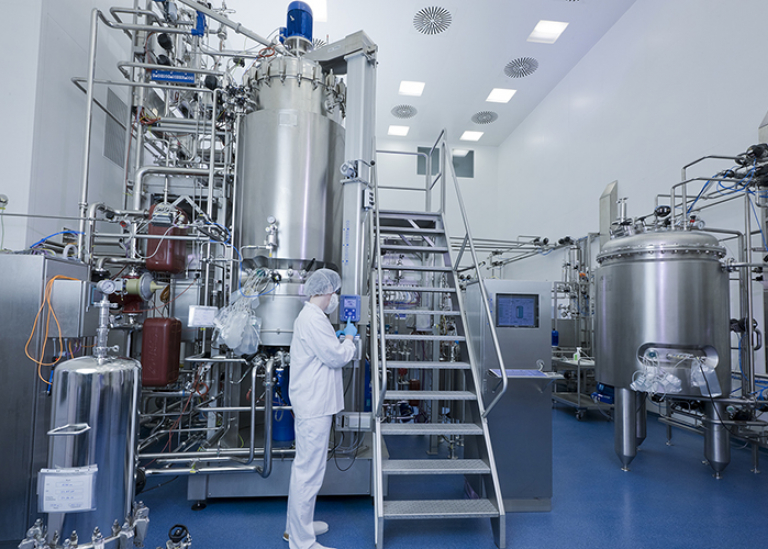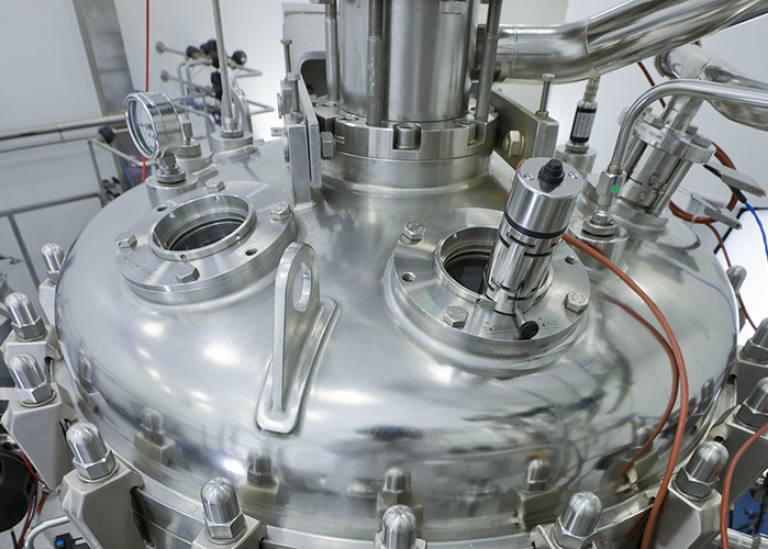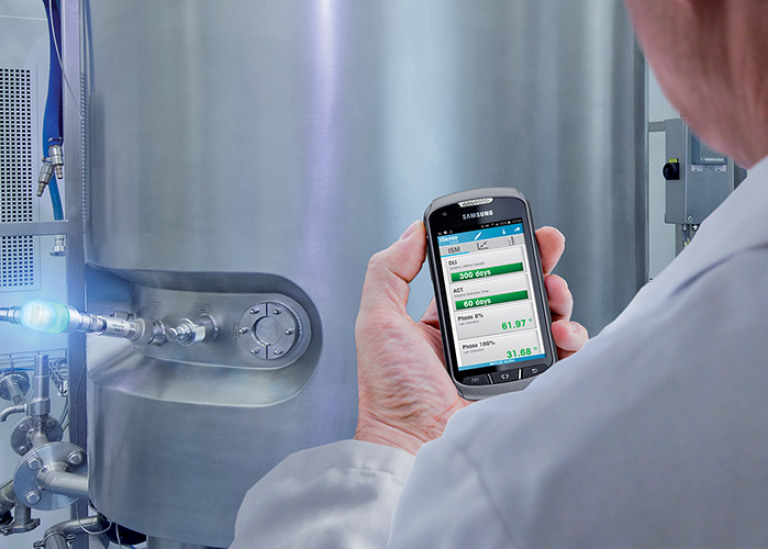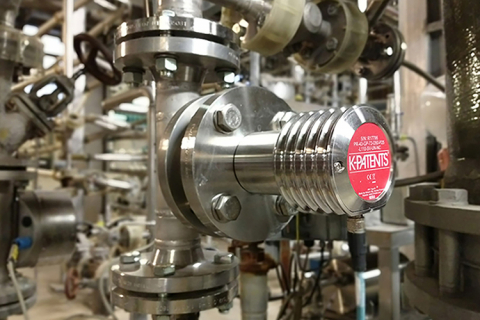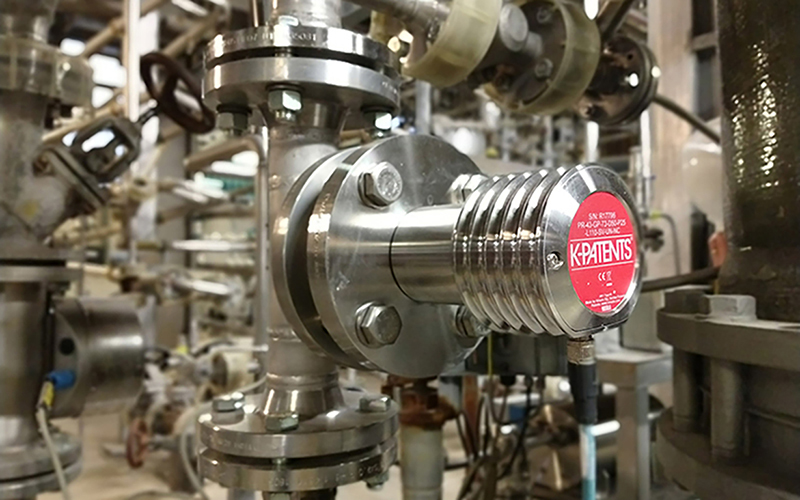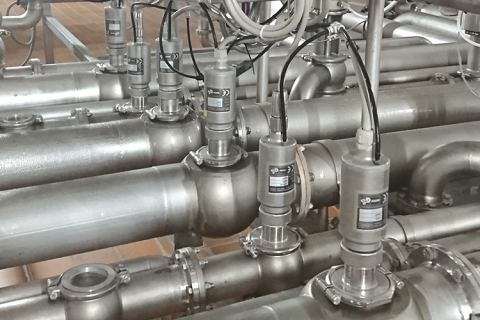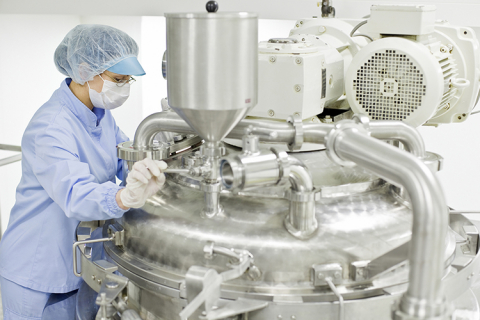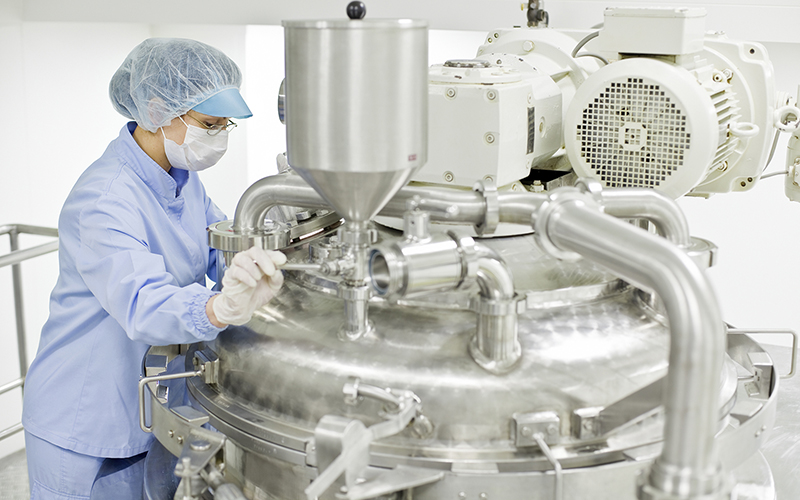BioPharma - Fermentation - Bioreactor
The bioreactor is the heart of the production process. Fermentation takes place here, where the cells or micro-organisms produce the desired products. This process must be carefully monitored and controlled in order to obtain an optimal yield. As in the previous steps, hygiene, calibration, validation, certainty and accuracy are very important. All sensors and analysers must simply comply with the guidelines and standards.
Oxygen
No fermentation without oxygen measurement! Oxygen sensors work on the basis of luminescence. These optical sensors are digital and intelligent, react quickly and are usable immediately, in contrast to the old sensors with membranes. Calibration and maintenance are no longer a problem with optical oxygen sensors. Using these sensors saves up to 6 hours of production time and increases efficiency and accuracy.
pH
Each fermentation requires an optimal pH range. The trick is to ensure that the medium remains in the correct pH range. pH electrodes that are also resistant to sterilisation (SIP) and do not show any major deviation after sterilisation are a logical choice. If these electrodes also indicate, through their built-in intelligence, what their status is and whether they are still good enough to be used in the next batch, the right choice is once again vindicated.
Refractometry
During the fermentation process, the concentration of different products constantly changes. The best way of monitoring changes in concentration of dissolved substances is refractometry or measuring the refractive index. That way, you know at any time whether the fermentation is going according to plan.
Turbidity
In fermentation, not everything is in solution. Some products remain in suspension and are responsible for the cloudiness or turbidity (sometimes called optical density) of the product. This is best measured with a turbidity meter.
CO2
CO2 is produced in the bioreactor. Too much CO2 can be detrimental to proper fermentation. It is therefore important to measure the CO2 content. Specific sensors measure this effortlessly and directly in the process. Changes are therefore much faster and more accurate than the analysis of CO2 in the headspace or evacuation pipe.
Spectroscopy
Do you want to continuously monitor the formation and concentration of a specific molecule, e.g. a certain protein? Then choose an inline spectrophotometer. Based on a mathematical model (built-in or self-made) and the measured spectrum, the analyser gives the concentration of the single molecule of interest.
More information?
